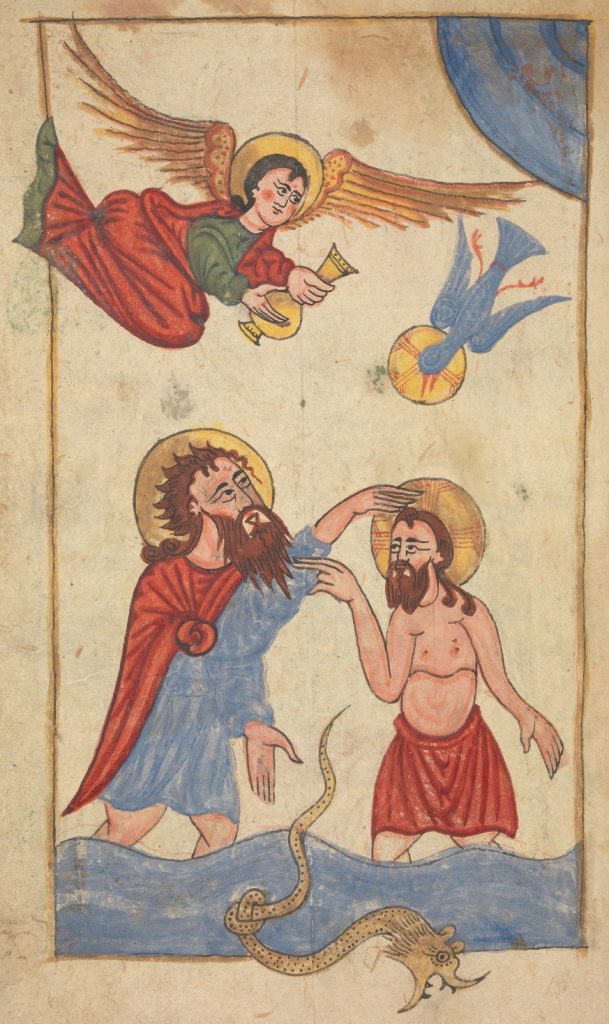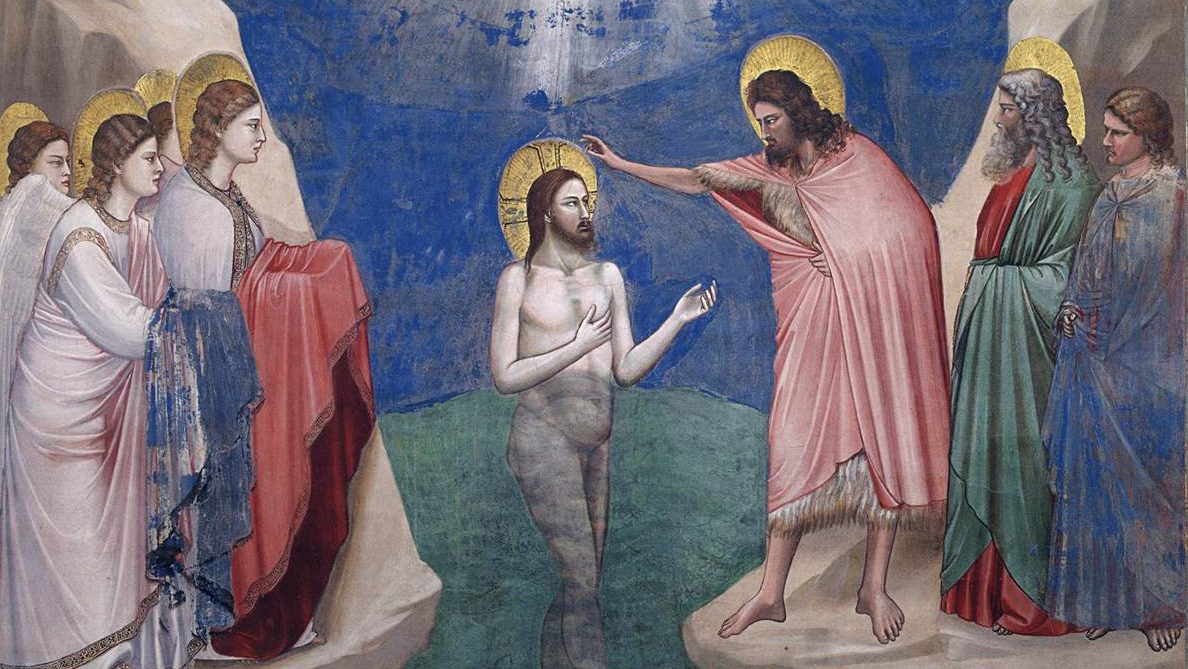A Way to Begin
The Baptism of the Lord
I heard a priest once shock a group he was speaking to by beginning his talk with, “God has no daughters.” He quickly continued, “and He has only one Son.” He was, of course, speaking of Jesus and the fact that it is by baptism that Christians become adopted sons and daughters of God (see Eph 1:5, Rom 8:15, and Gal 4:4-7).
We often hear it said nowadays that we ought to have mutual respect and love for one another because we are all children of God. This is certainly true in some respects. Every human being has innate dignity as a creature made by God. But a creature made by God is not the same as God’s child. Now human beings are not merely made by God; we are made in God’s own image (see Gen 1:28). That gives us a dignity above other creatures and even allows us to consider ourselves as God’s children in a certain way; it is a dignity we share with the angels who also are made in God’s image (they have rational minds and free will and so are true persons, like us, and like the Trinity). The Old Testament sometimes uses the phrase “sons of God” to refer to angels as well as to holy men.
So if holy angels and holy humans can be considered sons of God, why do we say that Jesus is God’s only begotten Son? It’s the difference between making and begetting. A carpenter can make a chair. A potter can make a jar. An artist can even make a self-portrait. But only a father can make a son. All of these are examples of making, but only one is begetting. To beget is to share your same nature and substance with the one begotten. Carpenters don’t beget chairs, but horses beget horses. Cats beget cats. Humans beget other humans. And God begets God.
You and I can be called children of God only metaphorically, because God made us and we resemble him in many ways, but we do not share God’s nature. Jesus does. Son of Mary, born of a woman, as we celebrate at Christmas, Jesus is true man. But he is also “God from God, light from light, true God from true God, begotten not made,” as we profess in our Creed. As the Son of Mary, Christ shares our nature, and as Son of God, he is divine. This is what theologians call the hypostatic union, referring to the two natures united in the one Person of Jesus Christ.

What we celebrate on the Feast of the Baptism of the Lord is the event that inaugurates Jesus’ public ministry. Before he begins his great work of proclaiming the kingdom of God, Jesus is baptized by John in the Jordan River. When that happens, heaven is opened and the Father’s voice is heard proclaiming, “You are my beloved Son” (Lk 3:22). Jesus begins his great work with an affirmation of his identity by his Father. He is the Father’s beloved Son: not metaphorically but in reality.
Jesus did not become God’s Son at his baptism. He is the Son of God from all eternity. The proclamation of his filial identity at his baptism was not for Jesus’ benefit, but for ours. In his baptism, Christ shows us the way for us to become true children of God like him. By sharing in Christ’s baptism we are “born again,” that is, we receive a new divine nature. We become members of the Body of Christ. We become members of the Son.
Yes, God has only one begotten Son, but the Son has many members, and so God the Father has many sons and daughters by adoption in Christ. To be united in Christ is to share in Christ’s sonship, his kingship, and his calling.
Christ began his ministry with an affirmation of his identity as the beloved Son of God. As we begin the work of a new semester, let us do the same. Let us remember our baptism, and remember the great dignity that we have as co-heirs with Christ, adopted sons and daughters of the Father. When we hear the words proclaimed in the gospel at Mass this weekend, “This is my beloved Son in whom I am well pleased,” let us remember that those words are spoken to each and every one of us who participates in the life of Christ.

